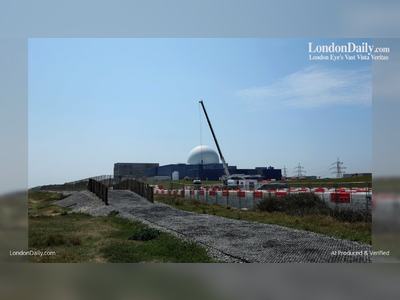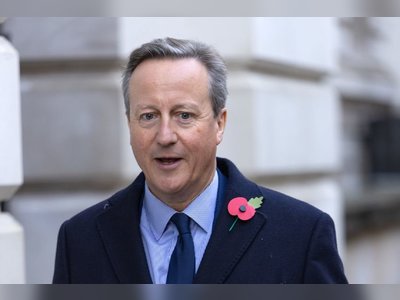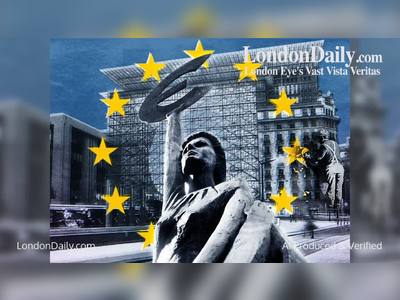UK Economy’s Weak Start Adds Pressure on Prime Minister Starmer
With flat growth, tax-raising budget and rising debt costs, Sir Keir Starmer’s government faces its first major test under unnamed electoral threat
Economic turmoil in the United Kingdom has placed Prime Minister Sir Keir Starmer’s leadership under strain, just over five hundred days after his Labour Party secured power.
Stagnant growth, mounting public debt and an Autumn Budget poised to raise tens of billions in taxes are mounting the pressure.
Recent reports show the economy is barely growing while inflation remains stubbornly high and the interest paid on government borrowing is forecast to exceed eight per cent of total public spending this year.
Central to the challenge is Chancellor of the Exchequer Rachel Reeves’s upcoming fiscal statement — widely expected to bridge a funding gap of about £20 billion by raising taxes and cutting expenditures while upholding strict self-imposed fiscal rules.
Public discontent with Labour’s economic performance is reflected in polling data.
Some suggest that Mr Starmer’s approval ratings are among the lowest of any British Prime Minister in decades and that his party is losing ground to the rival Reform UK. Led by Nigel Farage, Reform is polling consistently higher and positioning itself as the voice of both working-class discontent and anti-immigration sentiment.
Historically, the Labour government entered office inheriting an economy that had under-performed against counterparts such as the United States in both growth and productivity.
Yet the early appearance of crisis is unsettling given the party’s wide electoral majority and promise of change.
Analysts note a series of policy missteps, internal turbulence and the absence of a compelling vision have shaken confidence.
Attention is now turning to what’s ahead.
Senior Labour figures are reportedly debating potential succession scenarios, with names such as Wes Streeting, Angela Rayner and Shabana Mahmood circulating as possible future leaders.
Behind the scenes, the sense is that unless Starmer can quickly deliver tangible improvements in living standards and economic performance, the coming cycle of elections — including those for the Scottish Parliament, the Welsh Senedd and English local councils — could serve as a referendum on his government’s competence rather than its continuation.
Despite serious challenges, supporters argue that Mr Starmer has made strategic advances.
On the international stage he has cultivated a strong working relationship with former President Donald Trump, reinforced the United Kingdom’s defence commitments within the North Atlantic Treaty Organization and advanced trade links with major partners including India and the United States.
Domestically, his government has initiated reform of infrastructure, nationalised parts of the rail network and introduced a new industrial strategy.
Nevertheless, the effect of these strategic moves remains muted if everyday voters continue to feel squeezed and services continue to falter.
The budget statements into next year will serve not only as fiscal blueprints but as political barometers of the government’s capacity to deliver.
For now, the Starmer era is at a critical juncture, and the next few months may determine whether his administration pivots successfully or falters under growing turbulence.
Stagnant growth, mounting public debt and an Autumn Budget poised to raise tens of billions in taxes are mounting the pressure.
Recent reports show the economy is barely growing while inflation remains stubbornly high and the interest paid on government borrowing is forecast to exceed eight per cent of total public spending this year.
Central to the challenge is Chancellor of the Exchequer Rachel Reeves’s upcoming fiscal statement — widely expected to bridge a funding gap of about £20 billion by raising taxes and cutting expenditures while upholding strict self-imposed fiscal rules.
Public discontent with Labour’s economic performance is reflected in polling data.
Some suggest that Mr Starmer’s approval ratings are among the lowest of any British Prime Minister in decades and that his party is losing ground to the rival Reform UK. Led by Nigel Farage, Reform is polling consistently higher and positioning itself as the voice of both working-class discontent and anti-immigration sentiment.
Historically, the Labour government entered office inheriting an economy that had under-performed against counterparts such as the United States in both growth and productivity.
Yet the early appearance of crisis is unsettling given the party’s wide electoral majority and promise of change.
Analysts note a series of policy missteps, internal turbulence and the absence of a compelling vision have shaken confidence.
Attention is now turning to what’s ahead.
Senior Labour figures are reportedly debating potential succession scenarios, with names such as Wes Streeting, Angela Rayner and Shabana Mahmood circulating as possible future leaders.
Behind the scenes, the sense is that unless Starmer can quickly deliver tangible improvements in living standards and economic performance, the coming cycle of elections — including those for the Scottish Parliament, the Welsh Senedd and English local councils — could serve as a referendum on his government’s competence rather than its continuation.
Despite serious challenges, supporters argue that Mr Starmer has made strategic advances.
On the international stage he has cultivated a strong working relationship with former President Donald Trump, reinforced the United Kingdom’s defence commitments within the North Atlantic Treaty Organization and advanced trade links with major partners including India and the United States.
Domestically, his government has initiated reform of infrastructure, nationalised parts of the rail network and introduced a new industrial strategy.
Nevertheless, the effect of these strategic moves remains muted if everyday voters continue to feel squeezed and services continue to falter.
The budget statements into next year will serve not only as fiscal blueprints but as political barometers of the government’s capacity to deliver.
For now, the Starmer era is at a critical juncture, and the next few months may determine whether his administration pivots successfully or falters under growing turbulence.










